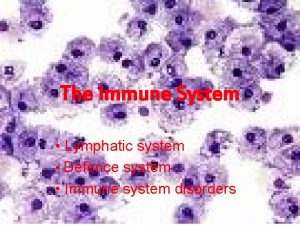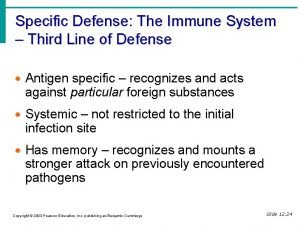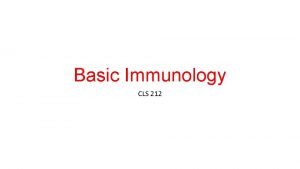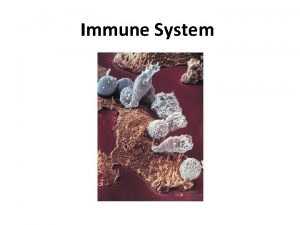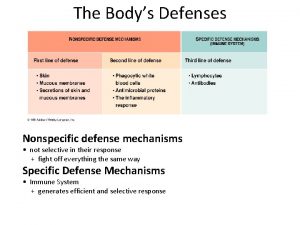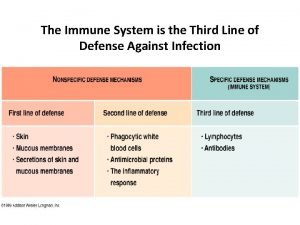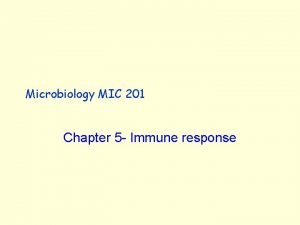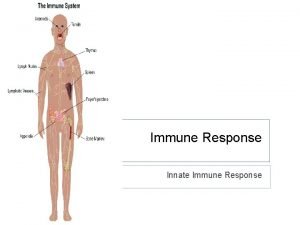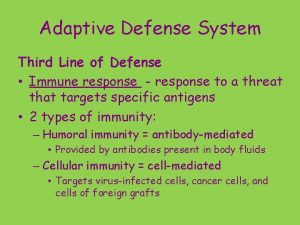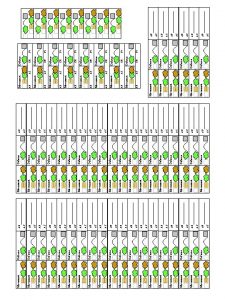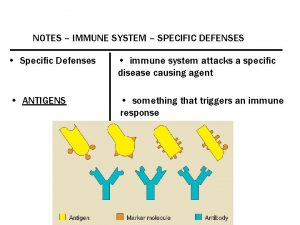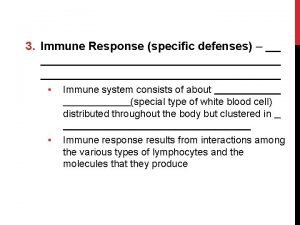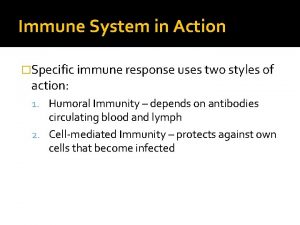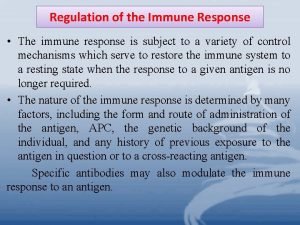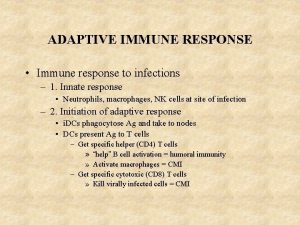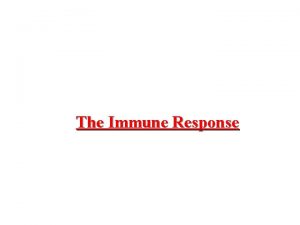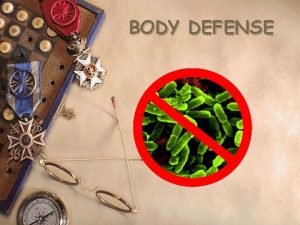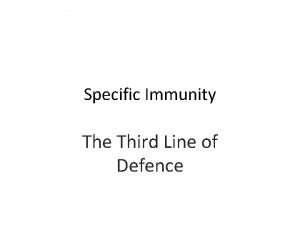Third Line of Defense Immune Response Specific Defense













- Slides: 13

Third Line of Defense Immune Response (Specific Defense)

Immune Response (Specific Defense) A series of specific defenses that attack a particular disease-causing agent is called an Immune Response

Two Divisions of the Immune System Humoral Immunity Antibodies mark infected cells for death Cell-mediated Immunity Cells attack infected cells

Cells of the Immune System Two types of cells recognize specific B Lymphocytes and T Lymphocytes antigens: B-Cell T-Cell

Antigen A substance on the surface of a pathogen that triggers an immune response is called an Antigen (Germ’s fingerprint)

Antibodies are proteins that recognize and bind to antigens

Plasma Cells • Plasma cells produce antibodies • Antibodies circulate in the bloodstream

Antigen Binding Site Antigen-Binding Sites The site that the antibody binds to the antigen is called the antigen-binding site

Memory Cells Memory cells - are antibody factories preprogrammed to respond to a returning antigen (i. e. vaccination)

You. Tube Cell-Mediated Immunity

Stop Here

Humoral Immunity Plasma Cell Antibodies B-Cell Pathogens (Bacteria, Virus, Fungi, Worms, Foreign Proteins) 1. Pathogen invades the body 2. B-cell recognizes antigen on pathogen 3. B-cells become Plasma cells, which produce antibodies against the antigen Antibodies bound to pathogen 4. Antibodies bind to the pathogen, marking it for death

Humoral Immunity B-Cells - provides immunity against pathogens found in body fluids.
 Primary immune response and secondary immune response
Primary immune response and secondary immune response What is the third line of defense in the immune system
What is the third line of defense in the immune system Third line of defense immune system
Third line of defense immune system What is the third line of defense in the immune system
What is the third line of defense in the immune system Second line of defense immune system
Second line of defense immune system Nonspecific defense mechanisms
Nonspecific defense mechanisms 3rd line of defense
3rd line of defense Primary vs secondary immune response
Primary vs secondary immune response Primary immune response
Primary immune response Unsaturated alcohol crossword clue
Unsaturated alcohol crossword clue Primary and secondary immune response
Primary and secondary immune response Cellular immune response
Cellular immune response Passive vs active immunity
Passive vs active immunity Vaccinations help prepare the body to fight invasions of
Vaccinations help prepare the body to fight invasions of

